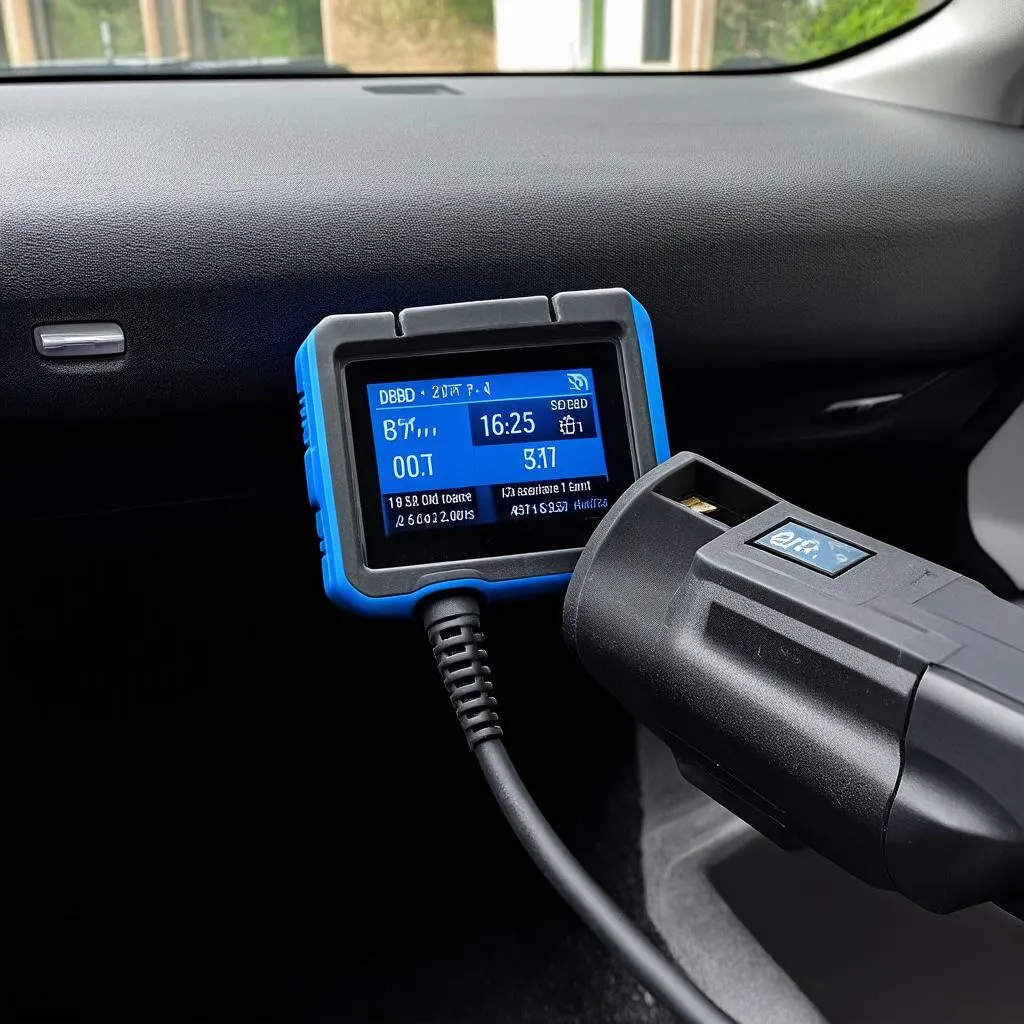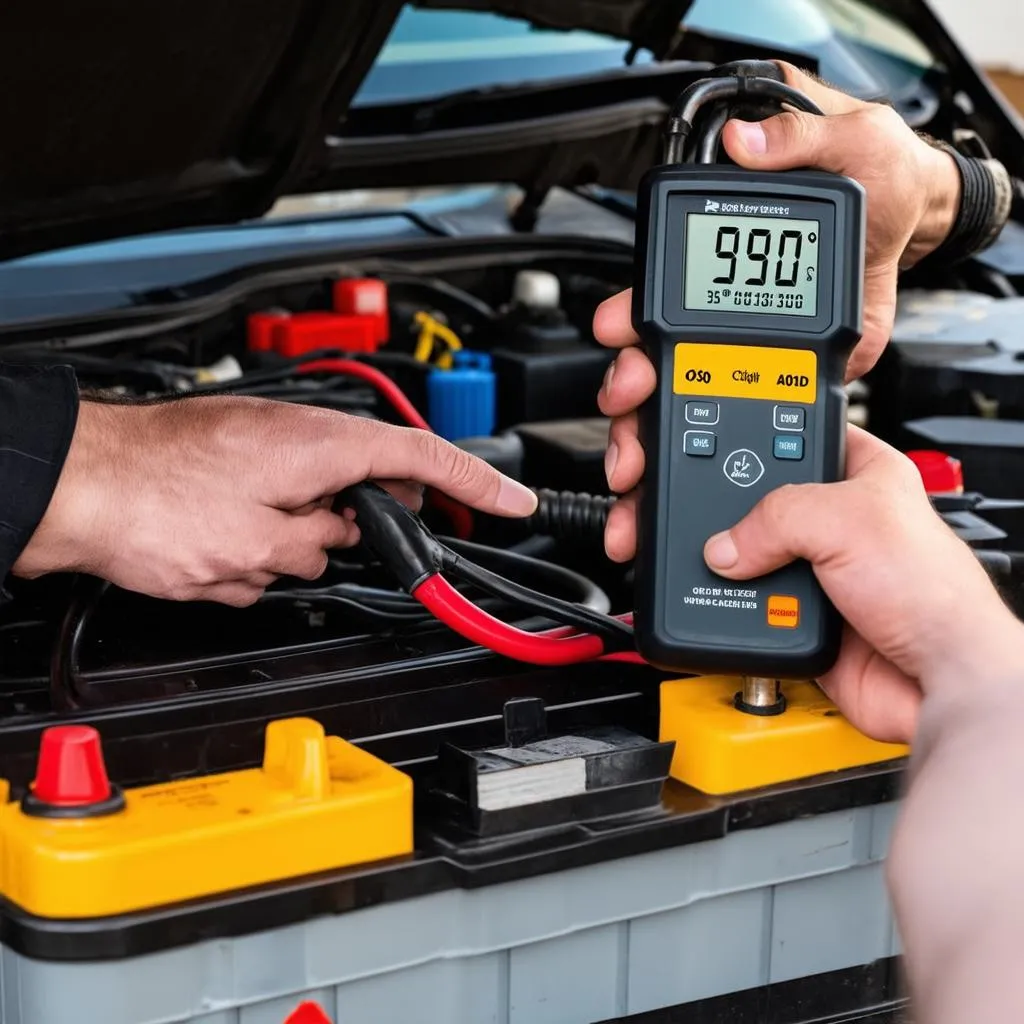Ever had that sinking feeling when your car refuses to start, leaving you stranded with a sinking suspicion it’s the battery? You’re not alone. We’ve all been there, wondering, “Is it really the battery, or something more sinister?” A common question that pops up is, “Can my OBD scanner tell me if my battery needs replacing?” Let’s dive in and find out.
Decoding the Mystery: OBD and Your Battery
Before we answer the million-dollar question, let’s break down what an OBD scanner actually does. Imagine it as a window into your car’s computer system, revealing Diagnostic Trouble Codes (DTCs) that indicate issues. Now, while an OBD scanner is a powerful tool, it doesn’t directly measure your battery’s health in the way a dedicated battery tester does.
“Think of it like this,” explains Alex Larsen, automotive engineer and author of “The Connected Car”, “your OBD system is focused on the car’s engine and emissions systems. While the battery plays a role in starting the car, it’s not directly monitored for its overall health.”
So, Can an OBD Scanner Help with Battery Issues?
While an OBD scanner won’t scream “Dead Battery!” at you, it can offer clues. Here’s how:
- Low Voltage Codes: If your battery is struggling, the OBD system might log codes related to low voltage to various modules.
- Charging System Issues: A failing alternator, responsible for recharging your battery, will often trigger OBD codes, indirectly pointing towards a battery problem.
- Electrical Gremlins: A weak battery can cause erratic behavior in other electrical components, potentially leading to stored codes.
But Remember: These codes are often symptoms of a weak battery or a charging system problem, not definitive proof of a bad battery.
When Your Gut (and the Lights) Say “Battery Trouble”
Sometimes, you don’t need a fancy scanner to tell you something’s wrong. Here are some telltale signs your battery might be on its last legs:
- Sluggish Engine Cranking: That hesitant roar when you start your car? Could be a sign your battery is losing its mojo.
- Dimming Lights and Electronics: Headlights looking more like candlelight? Interior lights flickering? These could point to a battery struggling to keep up.
- The Dreaded Click of Doom: Turning the key and hearing a rapid clicking sound instead of the engine turning over is a surefire sign of a weak or dead battery.
Taking Charge: What To Do Next
If you suspect your battery is nearing retirement, don’t panic!
- Get it Tested: Head to a trusted mechanic or auto parts store. They can perform a quick and easy battery test to determine its health.
- Consider Your Options: Armed with the test results, you can decide whether a simple jumpstart will suffice or if it’s time for a new battery.
- Proactive Prevention: Remember, car batteries don’t last forever. Most have a lifespan of 3-5 years. Regular checks can save you from unexpected breakdowns.
Beyond the Technical: Battery and Feng Shui
Interestingly, the concept of energy flow, central to the ancient practice of Feng Shui, finds an intriguing parallel in our car batteries. Just as a harmonious flow of energy is vital for a balanced living space, a healthy battery ensures the smooth flow of electrical energy, the lifeblood of your car.
More Questions About Your Car’s Electrical System?
We’ve got you covered! Explore more helpful articles on our website:
- Understanding Your Car’s OBD System
- [Common Car Battery Myths Debunked]
- [Troubleshooting Car Starting Problems]
 OBD Scanner
OBD Scanner
 Battery Test
Battery Test
Need Expert Help? We’re Just a Message Away!
Struggling with car diagnostics or need assistance with OBD software? Our team of automotive experts is available 24/7 to help. Contact us on WhatsApp at +84767531508 and let us get you back on the road!
